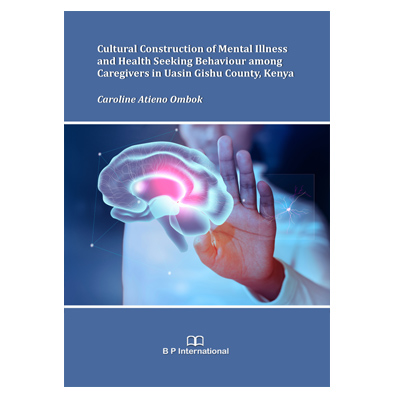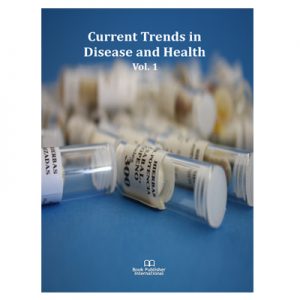This book was based on a study that was prompted by cultural issues that emerged in the management of patient with mental illness among caregivers in Uasin Gishu county a situation that did not seem real in real life, people were brought to the mental institution at the last minute after several other remedies have been sort. It is on this strength that the study wanted to find out how the mentally ill patient get managed before they are brought to the mental institution. The main assumptions in the study was that mental illness in the study area was a cultural construct. In this regard the traits linked sociocultural forms that can be linked to hereditary, lifestyle, biopsychosocial and cultural causes thereby being intergrated and welded into an unfolding cultural process.
The study population were caregivers of patient with mental illness visiting MTRH Mental unit and mental health clinic. It was assumed that caregivers of people with mental illness hailed from the same ethnic background, given that Uasin Gishu – Eldoret is a cosmopolitan town, caregivers were also coming from the neighbouring counties.
At the methodology the study used mixed method research design. It relied on survey method, Focus group discussion, key informants and informal discussions. Field work was carried out over a period of four consecutive months. Quantitative and qualitative data were screened and cleaned for missing data and outlier and was then analysed.
This book has been divided into five chapters. The first chapter provides introduction and background to the study. The chapter comprises of the problem statement, the objectives of the study, Hypothesis, Rationale, and significance in my undertaking this study. The chapter ends by definition of key terms used in the book.
The second chapter reviewed literature of works already done and which relate to areas around culture, caregivers and mental illness in general. Reviewed literature set general parameters within which the study focused on. The chapter also explores theories that were relevant to guide the study. In this case two theories used were Jean Piaget constructivism theory and Lauver health seeking behavior theory. The chapter ended by mentioning the summary on the knowledge gap in this study.
Chapter three discusses data collection methods used in this study. The chapter starts by describing the study site where the study subjects were found, Research Philosophy, Research Design and Target Population. The chapter then discusses the reseach methods: the sampling techniques used, the different methods applied during data collection, their limitation and methods used to analyse data and ethical issues considered during the study.
Chapter four discusses some findings in the study. The chapter lays ground on detection of univariate and Multivariate outliers, descriptive analysis of study variables, inferential analysis results, results that test for direct effects of cultural construction of mental illness on Health Seeking behavior finally the chapter discusses testing for moderation effects of Contexual factors.
Chapter five is the summary of the discussion of the ffindings, it reflects on the key objective of the study and arrives at certain conclusions. It also makes recommendations where necessary on practice and future research.
This end product came as result of contributions provided by a number of people for practical purposes. It will be an effort in futility to attempt a complete list given this short space. The range from my resourse person in the field, to individuals that formed part of my academic, family, as well as social circles.
Just to mention though posthumous Prof. Joshua Akong’a and Prof Omar Egesah. Prof Joram Kareithi and Dr. Wandere deserve special mention for mentoring me and ensuring that the final act is eventually put together. They tirelessly put in more hours of commitment in order to shape the work. I am profoundly thankful to them for these invaluable services.
Field work is exciting though it would not have materialized without the support of Chairman IREC, CEO, MTRH, NACOSTI and Nancy (Research assistant) for licensing and allowing data collection to take place. This acknowledgement will not be complete without recognizing the moral support from OSCAR’s Project Staff then headed by the Late Prof Ayuku and the Late Mr. Allan Kamanda I feel grately indebted.
Finally, I very much appreciate the unsolicited patience and understanding of my daughters Sally and Magda together my Sis In law Mary Odhiambo my sis Irene Maraga who were my strength in those moments when things seemed not to be moving and when hope seemed to be on the verge of giving up into despair. Lastly the almighty who gave me strength to be able to complete the work.





